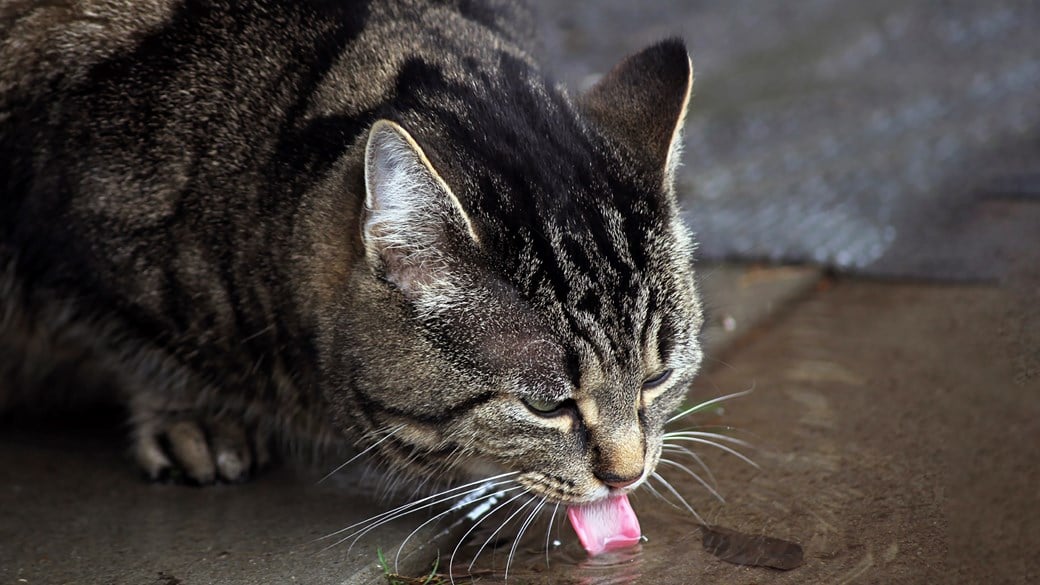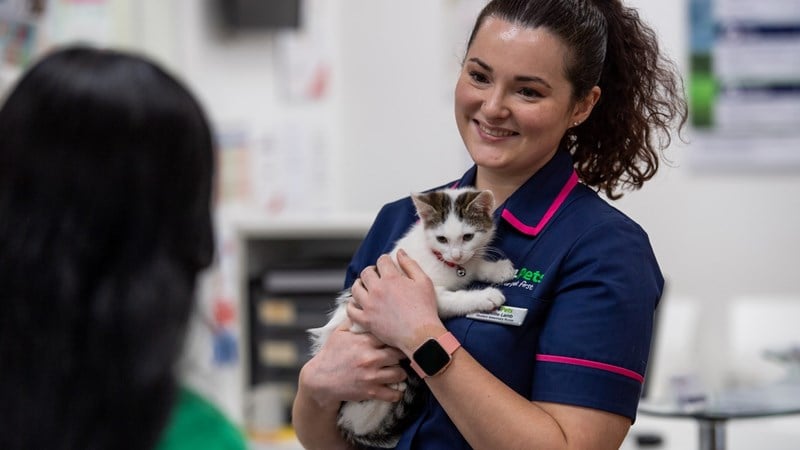
Antifreeze Poisoning In Cats
Sadly, antifreeze is hugely toxic to cats and every year cats across Britain are seriously ill or die from antifreeze poisoning.
Why would my cat drink antifreeze?
The toxic component of antifreeze is called ethylene glycol. Ethylene glycol has a sweet taste, which means animals and even children can be drawn to it. Cats do not taste ‘sweetness’ in the same way we do, but still find drinking ethylene glycol attractive. Ethylene glycol can be found after leaks of water coolant or brake fluid, after spillage of anti-freeze containing products when filling up cars, and if products are left uncapped. Uncleaned spillages can also get on cats’ paws, meaning they ingest the antifreeze as they clean themselves.
More about antifreeze poisoning in cats
Sadly, cats only need to drink a teaspoon of antifreeze to receive a lethal dose. This means that all spillages, no matter how small, should be cleaned up quickly and thoroughly. The ethylene glycol is rapidly absorbed into the body after drinking, and trigger signs start to appear from as little as 30 minutes to up to 8 hours after ingestion.
Ethylene glycol, the toxic component of antifreeze, causes severe kidney damage. Signs include:
- Vomiting
- Depression/lethargy
- Incoordination and unsteadiness
- Seizures (fits)
- Difficulty breathing
Damage develops from as soon as 30 minutes after ingestion, and worsens over several days until the kidneys fail. Intensive and rapid veterinary treatment, as soon after the antifreeze has been drunk as possible, may improve chances of survival. Tragically for most cats, even with prompt veterinary care, drinking ethylene glycol is fatal.
If you believe your cat may have drunk antifreeze, take them to your local vet immediately. With a clinical exam, blood testing and urine analysis your vet can suggest if ethylene glycol poisoning is likely. Clinical signs can mimic other medical conditions so a range of tests may be required. These are important as if your pet has ingested any ethylene glycol they will need to be treated as soon as possible, and treatment can be very specific.
Cats with antifreeze poisoning may be induced to vomit, if the suspected ingestion of antifreeze was recent enough. They will be given intravenous fluids (a drip) to support the kidneys, and either ethanol or a drug called fomepizole. These work in the same way, by blocking the chemical route of ethylene glycol-induced kidney damage. Blocking the ethylene glycol will only work if the damage already done is not too extensive, so rapid treatment is vital. Do not be surprised to see vodka at the vets – this is the most common way to give ethanol to pets with ethylene glycol toxicity!
Although it is impossible to eradicate the risk for an outdoor cat, making sure you and your family use antifreeze safely is really important. The safest route is to not use an ethylene glycol-based antifreeze at all. Propylene glycol-based antifreeze is more expensive, but safe for pets and other wildlife. If you do use ethylene glycol-based anti-freeze products, then spillages must be cleaned up immediately, the bottle kept in a secure place, and cars checked regularly for leaks.
There are also many other common household foods and products that can cause toxicity in cats.
If you think your cat may have ingested antifreeze, please contact your local Vets4Pets surgery as soon as possible.
Health Plans to keep your cat healthy
At Vets4Pets we offer a range of Health Plans that make essential routine treatments more affordable. You'll save money on things like annual vaccinations, flea and worm treatment and routine health check-ups.

Cat Advice
Read more of our expert cat advice to keep your cat happy and healthy.
